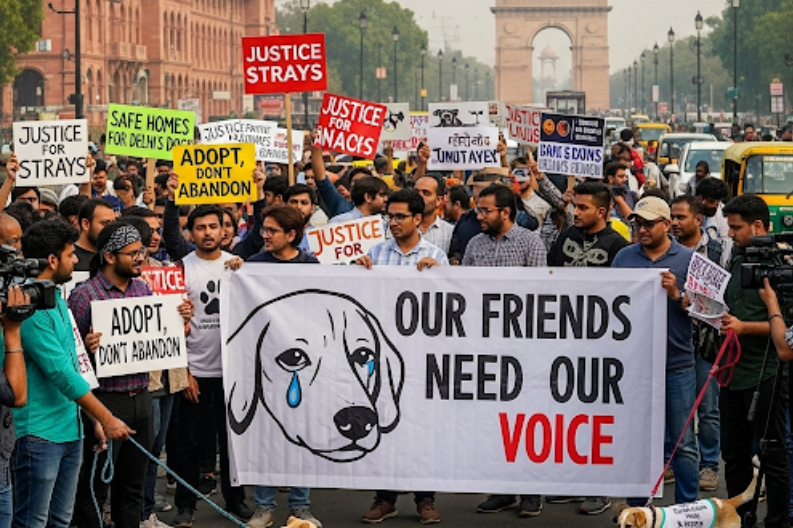Protests erupted across Delhi and the National Capital Region after the Supreme Court ordered the state government to move all stray dogs into shelters within eight weeks. Demonstrators gathered at India Gate to voice their anger over the ruling, and police detained several participants. One animal caregiver, while being taken away, said, “They don’t want us to talk… I am being detained because I do the noble work of feeding animals.”
Animal rights groups, including PETA India, condemned the ruling. They argued that removing dogs from the streets and placing them in shelters is neither scientific nor practical. Dr. Mini Aravindan, senior director of veterinary affairs at PETA, explained that communities often treat stray dogs as part of their families. She warned that displacing them disrupts social harmony and stressed that the city cannot build shelters large enough to house such a vast population.
A 2022–23 survey estimated that Delhi has about one million community dogs, and less than half undergo sterilization. Activists emphasize that sterilization, mandated since 2001, offers the most effective method of population control. It not only reduces reproduction but also ensures dogs receive rabies vaccinations, improving public health.
The court’s order also raised concern over costs. Maneka Gandhi, a prominent animal rights advocate, said building enough shelters would require ₹15,000 crore, making the plan unfeasible. Experts add that when officials relocate dogs, they often return to their original areas, sparking territorial fights and creating risks of starvation and disease.
Community caregivers play a crucial role in maintaining balance between humans and stray animals. Many residents feed and care for the dogs, forming strong bonds that relocation would sever. Activists urge the government to expand sterilization programs and involve communities more deeply in stray dog management.
As the eight-week deadline approaches, uncertainty hangs over the future of Delhi’s stray dogs. Citizens, activists, and animal welfare groups continue pressing for humane and practical solutions, hoping authorities will reconsider a plan that could cause more problems than it solves.



